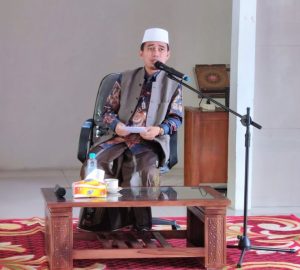In the modern era, along with the rapid movement of feminism fights for gender equality, it is not uncommon to find a woman playing the role as the main source of fulfilling her household needs.
Some of them work as office workers, lecturers, teachers, politicians, and some even work as unskilled workers such as factory workers, construction workers, and so on. Those professions have become common place. It’s no longer too much of a problem.
So how does the Islamic view respond to the phenomena above? Can a woman work outside the home? Moreover, some say that women are aurat. This Arabic term is defined as something (body parts) that must be covered. For such reason, those who say that women are aurat must forbid them to work and do activities outside the home. But the question now is, is it true that Islam forbids women from working and doing activities outside the home?
If we want to study and examine the history of the Prophet Muhammad, we will find interesting facts. That in his time several women worked and were active outside the home.
Among these women was Ummu Mubasyir Al Anshariyah. A hadith narrated by Imam Muslim relates that one day the Prophet met her in her date palm garden.
Then the Prophet (saw) asked her, “Who planted this palm tree? Are they Muslim or not?” She replied, “A Muslim.”
The Prophet said: “It is not for a Muslim to plant a tree or plant and then it is eaten by humans, reptiles, or anything else, except that it is a worthy charity for them.”
In addition to containing recommendations to protect the environment (go green), this hadith also shows that Ummu Mubasyir Al Anshariyah does activities outside the home, in her date palm garden. It could be that at that time she was taking care of her garden.
In Sahih Bukhari, it is narrated that Ka’ab bin Malik’s female slave was herding goats in the Sal’ area, and one of the goats became sick and she slaughtered it with a stone.
When the Prophet was asked about the law (of her slaughtered meat), he replied, “Eat (the meat)!” This hadith shows that a woman in the time of the Prophet did a job normally done by men, such as herding goats.
Furthermore, still in Sahih Bukhari, Sayyidah Aisyah relates that on the day of the battle of Khandaq, Sa’ad was seriously injured in the arm. He was then treated in one of the treatment tents. However, he died from bleeding too much.
Ibn Ishaq, as quoted by Al Hafidh Ibn Hajar in his book, Fathul Bari, said that the tent belonged to Rafidah Al Islamiyah. This hadith shows that in the time of the Prophet, women also played a crucial role in wars. They helped and cared for the wounded soldiers inside the tent.
From the historical facts above, it can be concluded that Islam never forbids women from working and doing activities outside their homes. However, women who want to start a career outside the home should fulfill the provisions and ethics that have been set and applied by Islam.
It does not mean that Islam limits women, but rather to maintain their dignity as well as protecting them from unwanted things.
As we know, long ago in the Jahiliyah era (Dark Ages), women were treated arbitrarily. They are seen as inferior, troublesome, worthless, and jinxes. Until Islam came to destroy all those evil, injustice, arbitrariness, and darkness that befell women.
Since then, the dignity of women has been elevated because Islam places them in a proper position by giving them their rights appropriately without reducing them in the slightest.
The high point of Islam glorifying women is when they become a mother. A hadith relates that when a man came to the Prophet and asked whom he should be more devoted to, the Prophet called his mother three times and then his Father.
There are some provisions and ethics that must be met by women who want to have a career and have activities outside the home: (1) the work is permissible (halal), (2) is a necessity, both for themselves and the wider community, (3) has been discussed with their husbands for those who are married, (4) not ignoring the rights of their husbands and children, (5) not violating their (women’s) nature, (6) wearing appropriate clothing that is not revealing, (7) not using perfume, make-up or jewelry excessively, (8) having good manners, (9) not provoking slander and (10) not doing khalwah (being alone in a quiet place) with other men (ajanabi).
Of all the provisions and ethics that have been described, the fourth condition is the most emphasized one which is not neglecting the rights of her husband and children. Because in essence, the main task of a woman is to fulfill her obligations to her husband and children by being a good wife and mother.
Furthermore, the role of the mother is very important for the development and education of their children. Mother is the first school for her children.





